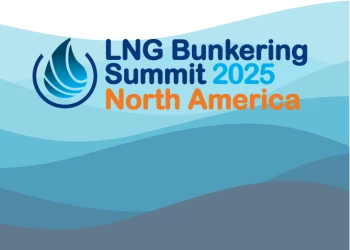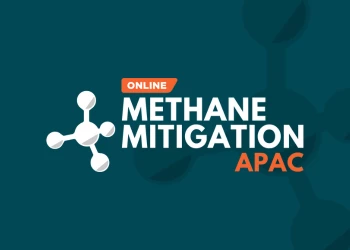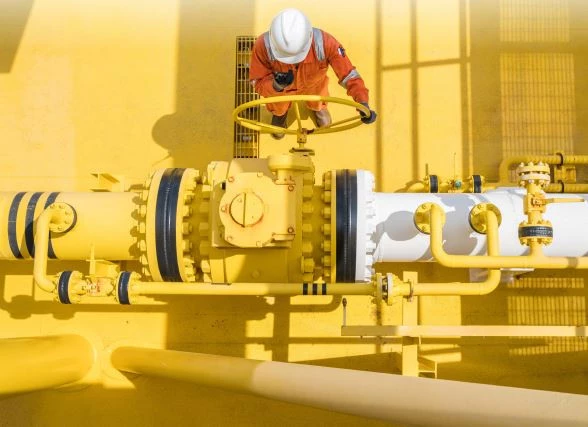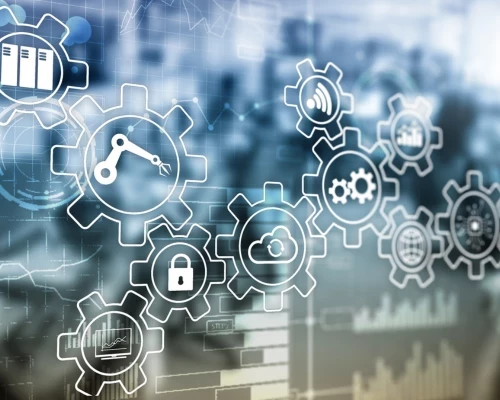Interview: Shell USA's President on Driving an Inclusive Energy Transition
Add bookmark
Fossil fuels are integrated into the very foundation of modern, global economies. These hydrocarbons provide a powerful, reliable and affordable source of energy to virtually every industry on the planet.
But as global leaders seek to reduce carbon emissions, it’s important to ensure equitable access to the new low carbon energy world, argues Gretchen Watkins, President of Shell USA.
“As a country we're talking a lot more about the transition and the energy transition, as one that needs to be something that moves everybody forward,” she says. “If the energy transition is only for people that can afford to put solar panels on their roofs, or put Teslas in their garage, we've really missed a trick.”
In a podcast, broadcast LIVE from Oil and Gas IQ’s Operational Excellence in Oil and Gas Summit, Watkins talked with Mark LaCour, Editor in Chief of Oil and Gas Global Network, about how Shell plans to balance energy security and affordability, while meeting global targets to decarbonize. She also defends the industry’s record profits amidst soaring gas prices for American consumers.
Shell recently reported its second highest ever quarterly profits during the third quarter of 2022. Underlying profits more than doubled from $4.2bn in 2021 to $9.5bn in the same quarter this year.
“We are putting our money where our mouth is on the energy transformation. We are spending money with diverse suppliers. We are spending money on clean energy like wind and solar. We're spending money on hydrocarbons, and we're making sure that as we do that, we are decarbonizing the way that we produce those hydrocarbons,” she explains.
The following is a transcript of the interview, broadcast from Houston on November 3, 2022. It has been lightly edited for readability. The original interview can be heard on OGGN’s “Oil and Gas This Week” by Mark LaCour and Paige Wilson.
[TRANSCRIPT]
Mark LaCour: Gretchen, in today's crazy geopolitical arena, energy security is a very hot topic. How is Shell going to continue to provide affordable, reliable oil and natural gas while also delivering decarbonization?
Gretchen Watkins: Thanks, Mark and thanks for inviting me to join you this morning for this live podcast, but also, thanks to all of you for being part of this.
We've experienced a bit of a one-two punch as an industry over the course of the last couple of years. and frankly as a world, not just the industry.
We had the pandemic. We saw things happen during the pandemic that had really never happened before in most of our lifetimes, if not all of our lifetimes. We saw demand destruction almost immediately. We saw negative hydrocarbon prices. Whoever thought we would see that? Then we saw the world roar back and demand recovered very quickly. Supply didn’t recover as quickly so we started to see a crunch there between supply and demand.
And then earlier this year, of course, Russia invades Ukraine and a lot of Western countries and companies, say “we're out. We're not buying anything from Russia.”
So, the whole hydrocarbon system had to reshape itself - rejig itself - and we're now continuing to see the effects of the impact of that on global markets and economies.
The events of the last few years, I believe, have put energy security right at the top of the list of many - if not all – people's agendas. I think it wasn't really something people were thinking about before the events of the last couple of years. People are thinking about it a lot now.
I think that's a good thing, because what it what it does is shines a light on the myth that this energy transition can happen quickly and easily with the flick of a switch. It cannot.
It can happen and it needs to happen. My company Shell very firmly believes [that] and we're working every day to accelerate the energy transition. But today the world needs hydrocarbons. The world needs hydrocarbons from places like the US Gulf of Mexico. Those of you that drove your cars here this morning, or maybe some of you flew in an airplane to get here; we are going to continue to need that tomorrow and the next day.
We firmly believe even in 2050, when we have a target to be net zero, we're still going to need those hydrocarbons. [The] Gulf of Mexico is the lowest carbon footprint molecules and barrels that we, as Americans, can consume.
It means that's a really important asset for the country from an energy security standpoint. That said, the world is moving quickly. I don't believe that the events of the last couple years have slowed down the energy transition. I think it's picking up speed. I think our staff, our citizens, our communities expect us to keep working towards accelerating that and so we're doing that. Every year we're investing more and more in renewables, [and] low and no carbon fuels.
Mark LaCour: Great answer. It has been a crazy time for the industry. We're at the Operational Excellence conference, so I have to ask this: why is operational excellence so important to addressing these challenges?
Gretchen Watkins: This is a topic very close to my own heart. I'm a mechanical engineer and I started my career working in the Gulf of Mexico as a facilities engineer. So, operational excellence is something that I personally have lived and breathed from the start of my career thirty-two years ago, all the way through to today where I have responsibility for a number of operations here in the US.
I think what we've learned as an energy industry is the importance of things like being able to replicate at a very low cost. For example, over the course of the next few months, we're going to bring on stream, a big installation in the Gulf of Mexico called Vito.
Vito, when it first hit the boards as a design, [was forecast to] cost 70% more than it [did] when [it] was sanctioned a couple of years ago.
We looked at it and said, we're doing all this really cool innovation stuff and stuff that's never been done before, but do we really need that? What we really need is something that's very low cost, very safe and very reliable.
So, we've sanctioned [the project] at a 70% lower cost than we had initially [planned], and we now are in the process of developing a new installation called Whale. Whale is essentially going to look exactly like Vito.
[This] ability to “pick up and pull over” is not only a cost solution - which means affordable energy for more people - it's also a safety thing so we can transfer people from one place to another. They know what they're seeing. They know how to work safely. They know how to operate safely.
Those are the types of things that I think about when I think about operational excellence.
I might just add one other thing. As an industry we've gotten a lot better at that. An example from our upstream portfolio in Shell: today it's about 20% smaller than it was when we had high oil prices back in 2013 - oil prices in 2013 were about where they are today.
We have 20% less production today, but our CFFO or cash flow from operations is actually 70% higher today. That just shows you that have driven a tremendous amount of efficiencies, costs out, and we're a whole lot safer from a process safety and personal safety perspective than we were 10 years ago.
Operational Excellence in Oil and Gas returns to Houston next November, 2023. Monitor www.oilandgasiq.com for up to the minute coverage and alerts or sign up to our (free) biweekly newsletter to receive exclusive content, learning opportunities, and member deals. Become a Member Today.


























